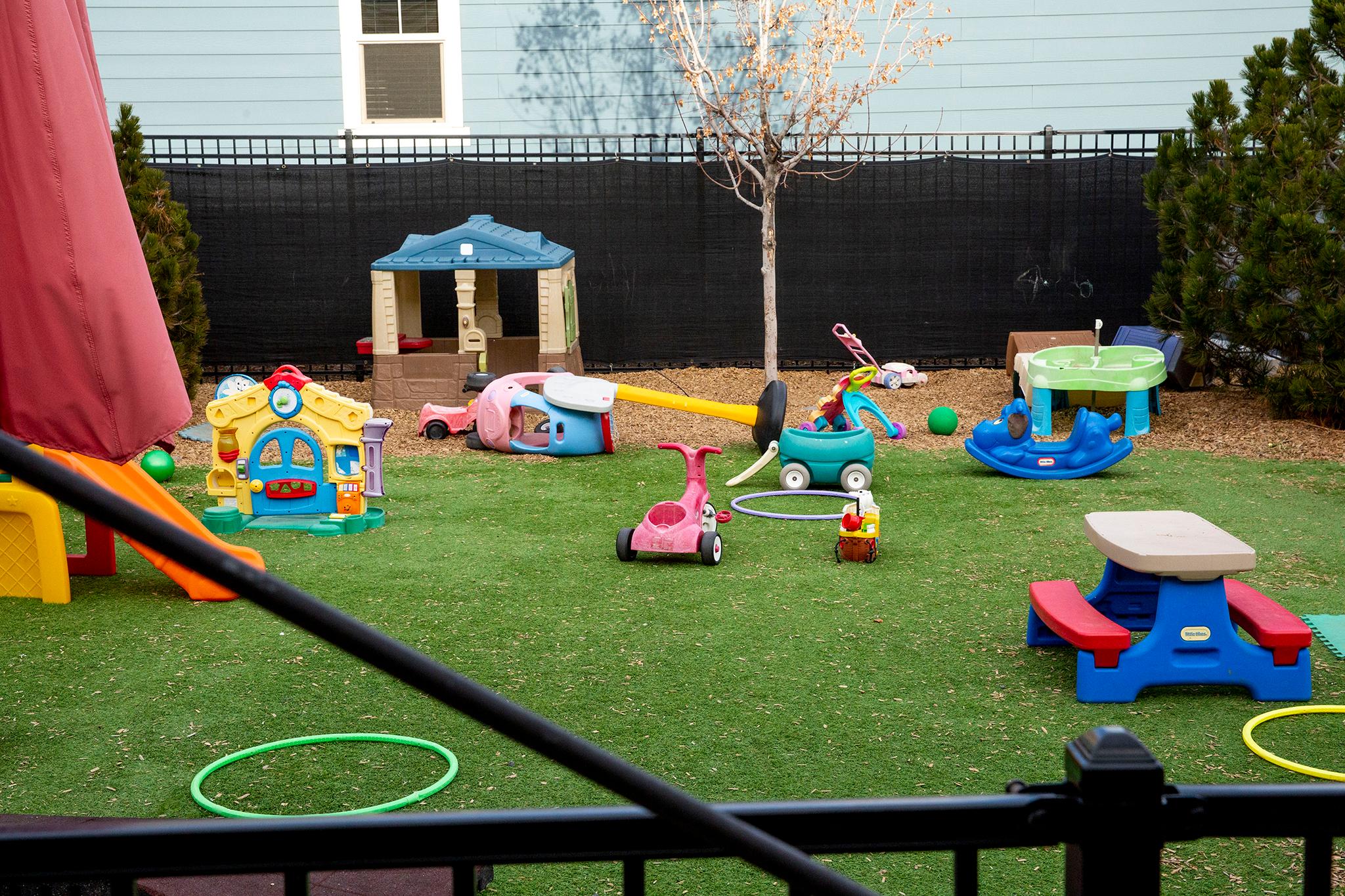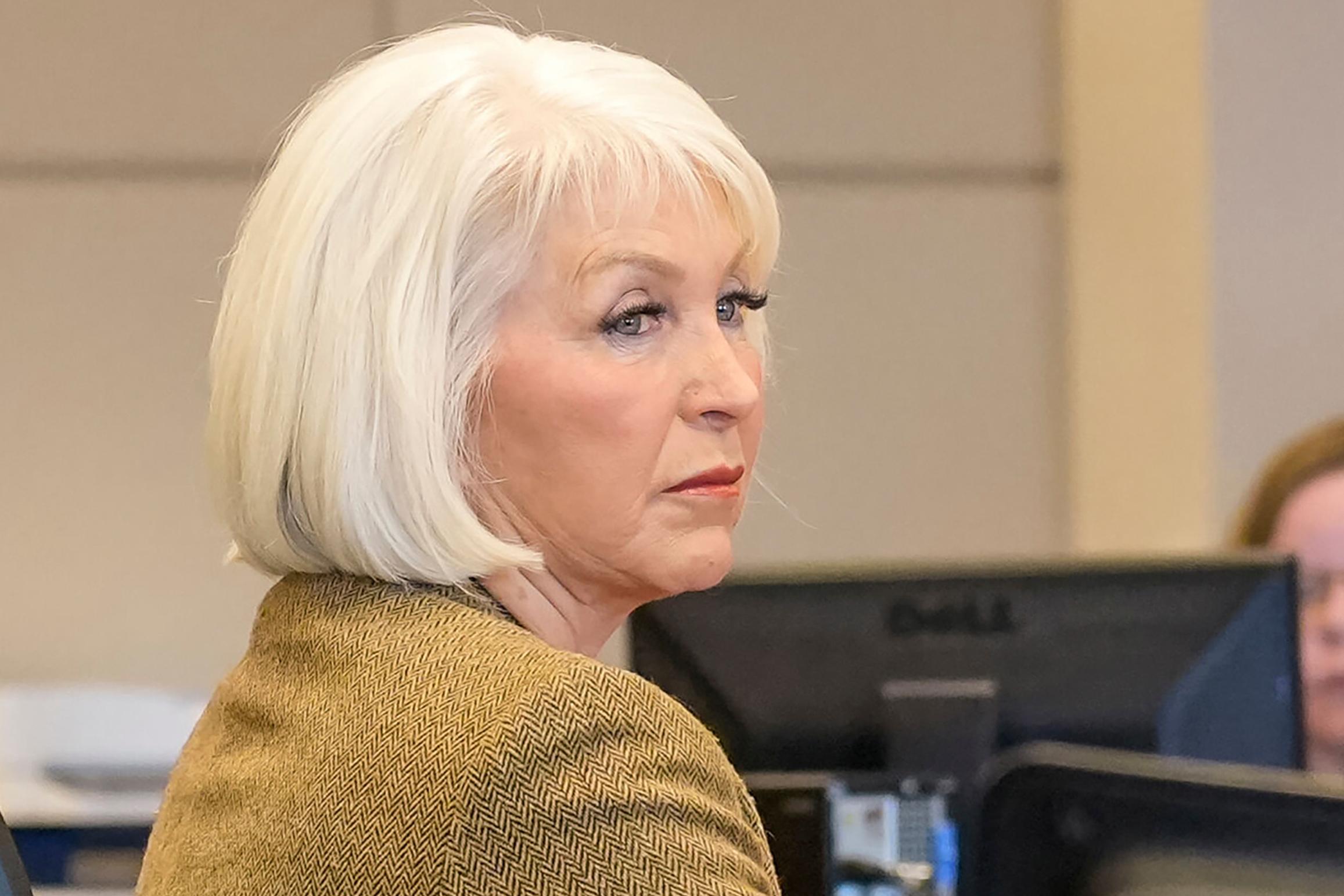
Universal preschool is coming this fall, and school districts are excited and committed, typical first-day-of-school feelings. But some districts are also frustrated, anxious — and even enraged.
As Gov. Jared Polis heralded the “monumental achievement” of free preschool in his State of the State address, behind the scenes many school districts, who will be providing at least 60 percent of the schooling for youngsters, were gnashing their teeth.
In their view, the rollout of one of Polis’ signature policies could have been so much smoother if they’d been listened to early on, and if the process wasn’t so rushed to meet the August kick-off date.
Voters approved universal preschool to start in fall of 2023. Families can get up to 15 hours of free schooling for their 4-year-olds in school districts, private child care centers, or in a home-based option. Some families with a qualifying factor can get up to 30 hours and 3-year-olds with a qualifying factor can get 10 free hours. So far, more than 20,000 families have signed up.
Here’s why there’s tension between state organizers and some school districts. Districts, for more than three decades, had a tried and true preschool system, from funding and screening to placing young children in slots through the Colorado Preschool Program. With UPK, that system disappeared and no one’s quite sure how the new system will work.
School districts' concerns fall into a number of categories.
Communication
Many school districts say they’ve been left out of the loop in planning the massive initiative. They couldn’t get key questions answered, which made it hard for them to give families information.
“Now that we're farther into the process, we're finding that we still have a lot of those same questions,” said Ashley Stephen, director of business services at the Platte Canyon school district. She was part of a meeting that district officials held with state officials recently, trying to get some answers.
Many observers say the fundamental problem is that officials in the new department of early childhood are building the UPK plane as they’re flying it “but I don’t even know where the pieces of the plane are,” said Callan Ware, director of exceptional student services at Englewood Public Schools.
The breakneck speed at which early childhood education officials had to set up a department and UPK by fall is not the fault of the new agency. It was the voters’ charge. Ware is hopeful communication with the state will pick up.
“It just was really, really fast,” said an early childhood director at one Metro school district. “It just feels rushed.”
Lisa Roy, who is the executive director of CDEC, said she can’t speak to the period of time before she arrived eight months ago but said communication is never adequate.
“We'll definitely continue to ensure that we're communicating and getting great input from our district providers because they're part of the system and so it's important that it works for them as well.”
Screening for children with disabilities
Before UPK, a family would enroll their 3- or 4-year old in a district preschool. District specialists would screen children for a number of learning or social or emotional disabilities. But under UPK, families fill out the UPK application. It simply asks if a child has an IEP — individualized education plan. That’s a formal plan outlining the skills and services teachers must provide. Most families with 3-year-olds have no idea what an IEP is because they get that when they’re enrolled in the public school system.
“So, we don't get the opportunity to ask families of those 3-year-old students if they have questions when they're completing the state application,” said Laurie Noblitt, director of early education in the Fountain-Fort Carson school district, which already serves about 512 preschoolers.
She said the state’s UPK application doesn’t allow them to drill down into specifics.
“We would look for potential red flags that would indicate a student’s having delays in development around specific skills. As a result of the pandemic our children are coming in with more significant language needs than we've experienced in the past.”
Special education directors are worried a lot of children will go unidentified. The organizations doing the application intake aren’t trained in disability law and school districts have repeatedly asked for it.
“We’re super concerned that the LCOs (local coordinating councils) will understand where to send the family who has a child who has a disability or if the parent is concerned their child may have a disability,” Englewood’s Ware said. “We keep asking for when and how they are going to get trained and we keep not getting answers.”
Up until Wednesday, there wasn’t a formal agreement between the Colorado Department of Education, which oversees special education, and the Colorado Department of Early Childhood, which oversees UPK. That caused anxiety for school districts.
The agreement reflects federal law, clarifying that a special team at the school district will determine where the child can best receive services. It also clarifies that if a parent declines that offer and chooses a community-based preschool instead, the school district isn’t obligated to provide services to that child.
CDEC's Roy said the department will continue to monitor enrollment of children with disabilities, to see whether the number reflects 10 percent to 15 percent of the population.
“We're not trying to use our UPK portal as a way of identifying children with special needs. It's simply to find out if they have an additional qualifying factor. It’s not a question that we use for them to get the additional 10 to 15 hours from the system. It’s to figure out if they could qualify for more.”
The new agreement clarifies that the local boards will be trained in special education law, but doesn’t specify when.
Confusion for parents
Some parents with a child that may have a developmental delay are being told they’ll get 30 free hours. But that’s not how federal disability law works. An education team from the school district has to meet and determine what the child’s needs are. And some districts will just be running half-day programs, not 30-hour programs. School districts, under law, are the only entity that can serve children with disabilities unless they contract with a private provider.
CDEC's Roy said that misinformation shouldn’t be happening because parents choose a provider that offers 30 hours if that’s what they want. She stressed that the first priority is establishing a universal preschool program for all 4-year-olds who want it.
“If there are additional dollars left over, then we have the ability to offer the (additional) 15 hours to those with qualifying factors. 30 hours is never guaranteed. That 10 to 15 is.”
Money for students with disabilities
School districts know how much they’ll get per preschooler. But what hasn't been clearly spelled out is how much extra they will get to meet the needs of students with disabilities. Historically, the state and federal government pay just a fraction of the cost of educating them. School districts pick up roughly 65 percent of the tab. That money comes from cutting into their regular K-12 education budgets.
“We’re just concerned that we’re going to have a bigger gap as a school district in meeting the needs of students with disabilities because we don’t have direct access to those funds like we used to,” said Englewood’s Ware. School districts say $34 million was transferred to CDEC to help districts with special education costs but so far, they don’t have assurances they’ll get the money.
CDEC's Roy gave assurances Friday that districts will get the money set aside for special education students. “I don't know how else to say it except for yes, yes, and yes. We will ensure that a percentage of the funding reflects proportionately with the number of children who have disabilities … we'll continue to work with districts to ensure that they have what they need to succeed.” The agreement signed between departments indicates the CDEC is only going to provide funding for general education slots.
UPK’s long-term sustainability and enrollment projections
The state’s priority is to fund half day, or 15 hours a week, for the state’s 4-year-olds. Some districts are concerned that they’ve spent years building full-day preschool programs based on the old funding model.
“There’s a concern that if the uptick for UPK is so strong, that there’s not enough money at the end of all those priorities to fund full-day, we might have to pick it up in other ways,” said Mat Aubuchon, director of early childhood education in the Westminster School District.
Platte Canyon’s Stephen said districts have concerns about state enrollment projections. The first year is supposed to have the lowest number of students, while the tobacco tax revenues will be the highest.
“So as funding decreases over the next few years, enrollment is supposed to increase … And if that's the case, what is the funding actually going to look like?”
CDEC's Roy confirmed the reimbursement numbers won’t go down because the state modeled for all 4-year-olds to have 15 hours.
“If the tobacco tax goes down, we would look to the legislature and our governor to see if there were other resources to support this work. But we're not there yet. Right now, we’re launching, and we do have enough funding.”
Additional costs and concerns
Some districts that didn’t already have preschool in all their elementary schools but that want to be able to serve as many children as possible must spend millions of their own dollars getting classrooms licensed for young children: that means new furniture fixtures and playground equipment that’s licensed for young children.
“With this expansion, we have incurred over $1 million of costs related to supplies, materials, and furniture, and expect to spend at least that amount on additional playgrounds and safety equipment,” said Scott Smith, chief financial and operations officer at Cherry Creek Public Schools. “We anticipate total costs could reach $5 million.”
Not all school district sites across the state have been licensed yet. In Cherry Creek, preschool is offered in a handful of sites right now, but it will be implementing district-wide preschool next school year.
“We are a public school district and that means any kid who wants to come here should come here and we will make sure that we deliver them an excellent education and experience.”
CDEC's Roy said districts are in good shape. They already have curriculum and assessments. She acknowledges many of the local coordinating councils, which match families to providers, need more support. She said agreements with providers don’t go into effect until July 1 and if there’s problems, they can be revisited.
“Licenses don't happen overnight, and thank goodness they don't, we need to make sure the classroom is high quality, that the teachers are qualified according to whatever setting they're in.”
Still, for school districts, who must adopt their budgets and roll UPK out in a few months, the unknowns made the process unnecessarily stressful.
All the school districts contacted by CPR stress they are excited about the opportunity.
“CDEC is working extremely hard, and we’re trying to partner with them as best we can,” said Westminster’s Aubuchon. “At this point, I think everyone’s really hopeful. All these parents are applying to UPK which is fantastic. We're looking forward to, in two weeks, we get our first round of applicants, what does this look like, how do we pick up the baton and help make placements for students.”
Roy acknowledges that had there been more time, things might have been done differently. She likens the whole process to a blended family coming together.
“For us it's building the new department, staff coming from different departments into a brand new culture that we're creating together, hiring the leadership team, building our backbone, all at the same time, launching a huge initiative. A blended family goes into it knowing that there's going to be some pain, but there's more joy.”









